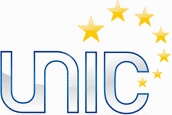
In Europe, the transition from heavy industry that had lost its competitive edge on the worldwide market to an economic model based on innovation penalises all the more the cities whose history and economic development have been intrinsically linked to a specific industry. The nine cities in the URBACT UNIC project share the common denominator of having a strong tradition in the ceramics industry and for two years they shared their experiences and developed local policies adapted to this changing economic context in order to make ceramics an asset for their territory in terms of innovation, cultural dynamism and attractiveness.

Main Results
Recommendations implemented by the partner cities in their Local Action Plans
From the initial study phase, the UNIC network used the URBACT Local Support Groups as a basis, bringing together key actors in the field in each partner city, and formulated a series of recommendations that the cities integrated into their respective Local Action Plans:
- Developing models for cooperation, such as excellence and competitiveness clusters, developed to promote interaction among research, innovation and economic development (European Centre for Ceramics in Limoges, Centre for Research in Ceramics and Composite Materials in Aveiro, Centre of Excellence for Ceramics Businesses and Innovation in Stoke-on-Trent, European Centre for Innovation in Ceramics in Castellon, etc.).
- Boost the skill level of personnel in the ceramics sector (the "Ceramics Skills Academy" in Stoke-on-Trent, Aveiro's skills and training plan).
- Work toward protecting the designation of origin (Limoges undertook a procedure to protect the name "Porcelaine de Limoges")
- Transposing ceramics know-how in an urban setting in order to demonstrate the diversity of applications (the "CityLab" in Catellon, the Open-air Museum in Faenza, the Sustainability Park in Aveiro).
- Developing cultural attractions and organising major periodical events to exploit the touristic potential of these cities (the British Ceramics Biennial on Stoke-on-Trent, Pécs: European Capital for Culture 2010, the international exhibit "De terre et de feu" by Limoges, the Cluj-Napoca "From Roman tradition to innovation" ceramics show, etc.).
- Fill the gap that exists between the city's image and its real identity by developing touristic itineraries (ceramics sector map in Seville, Ceramics Road in Delft), by associating residents (municipal campaign in Pécs, book about the history and future in Faenza), and by creating innovative marketing strategies ("Delft Blue").
A collection of the best initiatives by the cities, classed by challenge
At the end of the UNIC project, the network published a work called "Beating the Crisis with UNIC", which presents the most relevant actions implemented by the nine partner cities under five themes that served as a framework for the development of their Local Action Plans:
- Promotion of innovation
- Industry strengthening, especially via cooperation between industry and universities
- Urban integration
- Cultural and tourism potential
- Urban identity, through marketing actions and promotion.
Prospects
In addition to the immediate local impact, the approach undertaken as part of the UNIC project also led to the development of joint actions and projects:
- The partnership created as part of the URBACT UNIC project has been prolonged through the creation of the UNIC Urban Network for Innovation in Ceramics association.
During the final UNIC project conference, which was held in Delft, the partner cities signed a declaration of intention to create an association to lead the network’s activities. The association will enable, among other things, to support exchanges among actors, notably to continue to implement their Local Action Plans, and to develop partnerships with other networks. Activities to promote and defend the interests of its members will also be led, at the same time as actions monitoring, identifying and applying to European calls for projects. The next step will be to sign the statutes of the association, which will be headquartered in Limoges, and to sign its decision-making bodies, which will take place during the conference that is planned in Limoges in fall 2011. - The partners also plan to create a touristic European Ceramics Road.
The goal is to network the local roads grouping together cultural and industrial sites that highlight ceramics (manufactures, museums, museum stores, etc.). - Signing a charter in view of establishing the World Ceramics Road During the URBACT project, the UNIC network had the opportunity to carry out actions outside the European Union, notably with a stand at the International Ceramics Fair in Jingdezhen in 2010.
In June 2010, UNIC partners made their determination official to continue opening internationally to other Asian cities that share a strong tradition in ceramics by signing a charter to develop a World Ceramics Road. Four Asian cities are involved in this charter: Gangjin and Icheon (South Korea), Jingdezhen (China) and Séto (Japan). The founding members have committed to creating a ceramics information sharing platform in the areas of culture, academics, tourism and heritage, economics, artistic creation and technological research. The "World Ceramics Road" also intends to play a role in promoting tourism for its members, encouraging artistic and student exchanges and sharing experiences and good practices in terms of using ceramics techniques. Its objective is also to promote tourism for its members and to build for businesses a solid basis for commercial and technological exchanges.
Read more
- UNIC Project mini-site - URBACT website
- Beating the Crisis with UNIC - Final Report - PDF
- Zoom on Limoges - URBACT website
- Zoom on Pécs - URBACT website
- Zoom on Stoke-On-Trent - URBACT website
